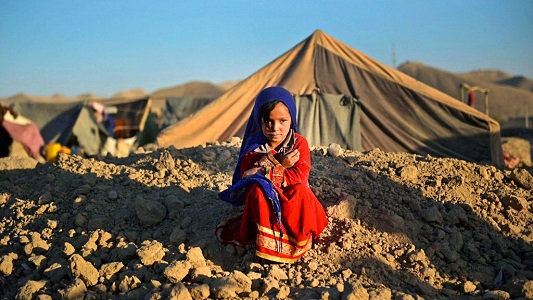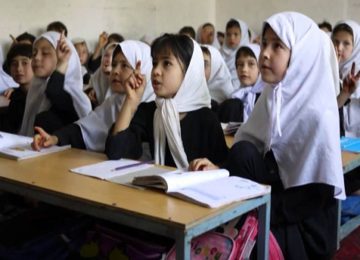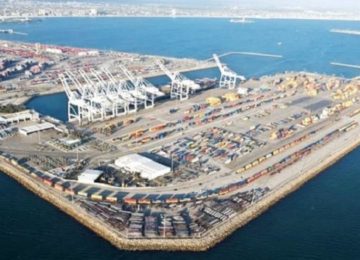Afghanistan has a deteriorating economy along with a hotchpotch of multifaceted perils. Food is available in Kabul marketplaces, but few people can afford it. Flour might cost as much as $30 per bag. Lack of access to bank accounts or foreign cash makes it difficult for businesses to purchase materials. Even if salaries for teachers and government employees have restarted, incomes are still lower. Cash is exchanged while selling silverware and furniture.
This is Afghanistan in the months following the Taliban takeover of Kabul, the overthrow of the Afghan government, and the American withdrawal. The US and NATO-led 20-year war ended, but economic catastrophe soon followed.
The western sanctions on the de facto Taliban government have made it worse for the Afghans to make both ends meet. However, the intervention of the UN in the aid processes has helped the Taliban handle state affairs to some extent.
Adam Weinstein, Senior Researcher at the Quincy Institute, while speaking to Afghan Studies Center, said:
Lifting sanctions is not going to resolve matters overnight. If sanctions are lifted today, we’d still be left with a landlocked country – is a crippling economy and an unattractive place for investors. Now, when I say lifting the sanctions, I mean the broad, sweeping sanctions. It might make sense to keep individual sanctions on individual Taliban figures. But, so far, as the way the sanctions work now, they were essentially intended for the Taliban as it was an insurgency, not for the Taliban as the de facto government of Afghanistan. And the effect of these sanctions has been a chilling effect on the country.
“UN engages in the sanctions, but the U.S. is the leader in their application globally, and in some cases, they have been overdone. Afghanistan is the ideal illustration of a situation in which sanctions currently serve no purpose whatsoever. Due to realpolitik considerations, the Biden administration gladly collaborates with Saudi Arabia while ignoring all of that nation’s abuses of human rights. Afghanistan is now isolated, largely as a result of the Taliban’s resistance and repression of its citizens. However, when you contrast these two cases, you have to question whether these sanctions are effective or just punitive.”, he further added.
Acute food insecurity affected almost 20 million Afghans or about half of the population. According to the UN’s March 2022 report, 95% of Afghans do not have enough food, which a UN official described as “a statistic so high that it is almost incomprehensible.” This year, severe malnutrition will affect more than 1 million children under the age of 5. The World Food Program found that 92 percent of households had debt and that 88 percent had to borrow money to pay for food.
This year, the UN has raised billions of dollars in relief for Afghanistan. But, in the end, this assistance acts as a last resort – a stand-in for a stumbling economy in Afghanistan.
The US might be helping Afghanistan by issuing general licenses and making exceptions, but, on the broader level, one sees that the Biden administration is more concerned about its strategic rivals – China and Russia. Afghanistan, sadly, is not the utmost concern for the country that boasts about human rights and civil liberties. With the war in Ukraine and the global endeavors for the balance of power, it seems that the world, as a whole, is overlooking the miseries of Afghans.
For a second, the developed nations might need to pause and prioritize human lives instead of struggling to maintain hegemony. Opportunism would not help Afghanistan – empathy and earnestness would.
By Elsa Imdad
Elsa Imdad is a USG Alumna. She holds a bachelors in modern languages with an English major and Spanish minor. She has previously been part of American Spaces in Pakistan and now works as a Project Coordinator at the Center for Research and Security Studies. She is also a weekly contributor for Matrix. Her interests include public diplomacy, global politics, peace and conflict resolution, capacity building for marginalized groups, etc.








